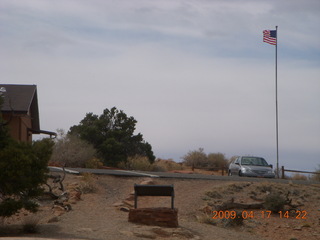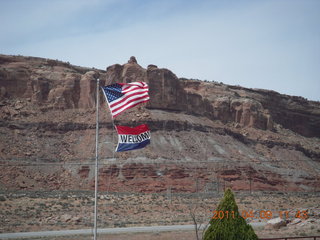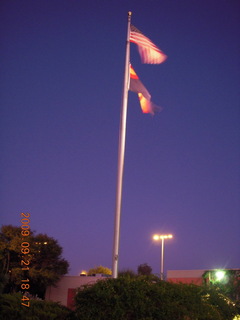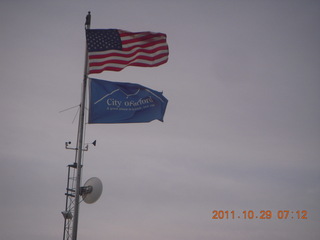WHO IS A LIBERTARIAN?
2015 April 15, Wednesday
 There is a one-upmanship game among libertarians.
You know how it goes:
"I'm more libertarian than you are because I believe in X
and you don't,"
or the other way.
In these times so hostile to liberty,
I think we need to think about including rather than excluding people
in the scope of "libertarianism."
There is a one-upmanship game among libertarians.
You know how it goes:
"I'm more libertarian than you are because I believe in X
and you don't,"
or the other way.
In these times so hostile to liberty,
I think we need to think about including rather than excluding people
in the scope of "libertarianism."
On the other hand,
"libertarian" is becoming the hot buzzword that "liberal" was
about a century ago.
NAACP may be praised as a "liberal" institution by the left,
but further reading reveals that "liberal" in those days
is what we call "libertarian,"
or sometimes "classical liberal."
I had a left-wing friend
advocating all kinds of government interference
defend himself by saying he was basically "libertarian."
(He was also the guy with a law degree
explaining to an engineer-scientist how science works,
that the majority of opinions determines the burden of proof
in scientific inquiry.)
Any definition of libertarian that includes
a big-government, believe-in-the-majority, left-wing liberal,
or a right-wing, religious-right-values zealot,
is insulting to a dedicated movement in human dignity
that has its 800th anniversary
on 2015 June 15.
In a tone emulating Thomas Kuhn
in his lecture where he tried to define "science,"
I seek a definition of "libertarian"
that includes those who embrace libertarian principles,
and excludes those who clearly reject them.
For those on the fence seeking clarification of their status,
well, I'm not sure any web-page essay is going to accomplish that.
"Am I a libertarian?
And if I'm not a libertarian,
then what's wrong with me?"
My own credential for establishing such a definition
is that I'm a mathematician and an engineer
who has produced considerable wealth in the private sector.
My career for the past third of a century
is figuring out the essential aspects of a problem,
what information we need to solve it
and what mathematical algorithms and computations are required.
(I'm also good at building those solutions in computer software,
but that credential isn't as useful for this discussion.
Fortunately, modesty on my part isn't required either.)
The right definition of a mathematical field of study,
or a political ideology in this case,
is a set of axioms or postulates
from which we can derive logical conclusions.
The axioms are derivable from some set of facts
and we can draw logical conclusions from our study.
It's a kind of thought-process bottleneck,
the narrow point in the path from reality to understanding.
Euclid based all of geometry on five postulates
so all we have to do is convince ourselves of their validity
and all the rest follows.
In the same vein,
once we accept libertarian principles from a good foundation
we have a logical basis for any conclusions derived
from that foundation.
 There is an interesting duality here,
at least interesting to a mathematician.
We accept axioms on faith as we study a field,
so geometers do not question the axiomatic properties
of points, lines, and angles
and topologists do not question the basic properties
of neighborhoods and open sets
in their quest for mathematically interesting conclusions.
When we seek to apply the field,
the axiomatic structure becomes a conclusion
of a more-foundational process.
We scientifically determine that points, lines, and angles
in our own universe
have Euclid's properties and only then can we take comfort
in the rest of his derivations.
Einstein's revelation (at least for my purpose today)
was that one of Euclid's postulates actually does not apply
in our universe and, therefore,
some of the geometric conclusions we used to draw
are not valid.
There is an interesting duality here,
at least interesting to a mathematician.
We accept axioms on faith as we study a field,
so geometers do not question the axiomatic properties
of points, lines, and angles
and topologists do not question the basic properties
of neighborhoods and open sets
in their quest for mathematically interesting conclusions.
When we seek to apply the field,
the axiomatic structure becomes a conclusion
of a more-foundational process.
We scientifically determine that points, lines, and angles
in our own universe
have Euclid's properties and only then can we take comfort
in the rest of his derivations.
Einstein's revelation (at least for my purpose today)
was that one of Euclid's postulates actually does not apply
in our universe and, therefore,
some of the geometric conclusions we used to draw
are not valid.
So our process is first to define "libertarian"
in a good way,
one that encompasses the views we libertarians share,
and then to determine what we can base those beliefs on.
Are we okay with that?
Let's start with this definition of "libertarian":
Libertarian is the political point of view
that embraces a moral foundation based on five principles:
human life, liberty, property, livelihood, and contract.
How you get those moral values
and where you think they come from
aren't terribly important,
only that you respect them in the political process.
That's it.
This definition has the advantage of including
all the various factions of libertarian-thinking people I know.
It includes religious people and atheists,
so-called "normative" and "utilitarian" libertarians,
anarchists and limited-government proponents,
along with
both socially-liberal and fiscally-conservative factions.
I'll start by explaining the foundation of these morals
and later I'll show how they encompass
the beliefs of most libertarians out there.
 The religious libertarians I know
see the basic human rights as coming from some kind of deity.
God is the source of these values.
They see religion in the Declaration of Independence,
"the laws of Nature and Nature's God,"
and follow that path to the moral values above.
There are others (like Ayn Rand) in this "normative" class
that accepts these morals as being the rock-bottom foundation
of good political process.
The religious libertarians I know
see the basic human rights as coming from some kind of deity.
God is the source of these values.
They see religion in the Declaration of Independence,
"the laws of Nature and Nature's God,"
and follow that path to the moral values above.
There are others (like Ayn Rand) in this "normative" class
that accepts these morals as being the rock-bottom foundation
of good political process.
Atheists and agnostics may reject the divinity of these morals
but accept that following them is a good path for humanity.
Those societies and communities that have respected
human life, liberty, property, livelihood, and contract
have lived better by just about any measure of success
than those that have not.
Similarly, there are others who believe the value of a moral code
is in its results
and rely on the favorable history of these five values.
I have discussed these five values
elsewhere.
My point here is these values define a point of view
that is reflected in the Magna Carta and America's foundation
and they constitute the core of libertarian thinking,
enough to be a valid definition of "libertarian."
Government redistribution of income clearly
goes against these morals,
violating liberty and property.
Government departments of education, energy, and environment
go against these morals
violating liberty and livelihood.
Government meddling with education or health care
or housing or racial quotas
or any of a long list of liberal causes
clearly violates liberty
and, when somebody has to pay for it,
violates property.
When government starts telling people what they can and can't
do for a living,
then we're violating livelihood.
When they tell people that promises
entered in good faith
don't have to be honored
because of some social change,
then they're violating contract.
Government deciding who is allowed, or not allowed, to marry whom,
or deciding who is forced to marry them in their halls of worship
clearly steps outside this value structure,
along with government deciding who can use which recreational drugs.
On the other hand,
employers having to hire people who marry people they don't like
or take drugs they don't like
is similarly outside these values of
human life, liberty, property, livelihood, and contract.
 Matt Kibbe
summarizes libertarian as
"Don't hurt people and don't take their stuff."
That's close,
but there are too many ways I can obey that directive
that aren't libertarian to make me happy
with it as a definition of "libertarian."
After all,
people who oppose prostitution and pornography
involving consenting adults
haven't hurt anybody and haven't taken their stuff
and yet they're clearly not libertarian.
It's a good sound bite
(and I'm not being sarcastic,
I really mean it,
and I liked it enough to buy his book),
but it's not comprehensive or foundational in my view.
Matt Kibbe
summarizes libertarian as
"Don't hurt people and don't take their stuff."
That's close,
but there are too many ways I can obey that directive
that aren't libertarian to make me happy
with it as a definition of "libertarian."
After all,
people who oppose prostitution and pornography
involving consenting adults
haven't hurt anybody and haven't taken their stuff
and yet they're clearly not libertarian.
It's a good sound bite
(and I'm not being sarcastic,
I really mean it,
and I liked it enough to buy his book),
but it's not comprehensive or foundational in my view.
Others define "libertarian" as the principle
of non-initiation of force.
I have two problems with that definition.
First, it defines one term in terms of another wanting definition.
Human life, liberty, property, livelihood, and contract
are just as self-evident in their definitions as "force."
(Telling somebody that a "gribble" is defined as an "ignu,"
only helps somebody who already knows what an ignu is.)
My second objection is that it's not quite true.
My example is a man shoots a gun into a crowd and misses everybody.
He has initiated no force and done no harm
and yet I would join an angry mob in subduing that fellow,
clearly initiating force.
With smugness befitting a clever mathematician,
I'm going to insist that just about any definition you use for "force"
allows me to find some situation
where a pre-emptive use of force
is appropriate and consistent with what most libertarians believe.
It's good illustration but not a good definition.
Ayn Rand believes in this set of values as a first principle.
I differ with her on the primacy of them
as I believe they should come from somewhere else.
(The morally-smug communists claim the same moral primacy,
but their results hardly appeal to me.)
In my case they come from the last millennium of human history
where societies following them have simply lived better
and those who have violated them,
in (her words) "the expediency of the moment,"
have suffered horribly.
She goes a step further, however, where I do not follow,
in suggesting that voluntary giving without payment
is somehow a violation of libertarian principle.
I explain
elsewhere
that she's putting the heart before the course
just as Christianity got the Golden Rule backwards
from the original Jewish version.
Not taking from others
is a far cry
from not giving to others.
I see these don't-do-wrong foundations for libertarian
in the light of a
scene
from the movie "Office Space."
Peter Gibbons is answering the hypothetical question
of what he would you do if you had a million dollars?
Peter says,
"I would relax.
I would sit on my ass all day.
I would do nothing."
His neighbor Lawrence replies,
"Well, you don't need a million dollars to do nothing, man.
Take a look at my cousin:
he's broke, don't do shit."
The same way, defining a political posture,
or a social directive,
by what we will not do
limits our vision of what we want to accomplish.
Since our founding principles from the Magna Carta
through our Constitution are precisely directives
about what government should not do,
there is a conundrum here.
I'm suggesting we should define a negative stance
with positive direction.
It's hard, but I think it's important to do it that way.
 A good definition includes what we want to include,
excludes things we don't want included,
and does so in an illustrative way.
I believe my definition of the moral principles of
human life, liberty, property, livelihood, and contract
do precisely that.
They prescribe a world where government
(and any other nosy busy-bodies who have nothing better to do)
keep out of other people's lives.
They don't require any particular
religious, scientific, or political viewpoint,
only the insistence on maintaining this particular dignity
in how people interact.
A good definition includes what we want to include,
excludes things we don't want included,
and does so in an illustrative way.
I believe my definition of the moral principles of
human life, liberty, property, livelihood, and contract
do precisely that.
They prescribe a world where government
(and any other nosy busy-bodies who have nothing better to do)
keep out of other people's lives.
They don't require any particular
religious, scientific, or political viewpoint,
only the insistence on maintaining this particular dignity
in how people interact.
My interpretation of Thomas Jefferson's writing
in our Declaration of Independence is
"the laws of Nature and Nature's God"
refer to what we are and what we have to live by
as a result.
Human beings are capable of great things,
but they are a couple of hormones away
from unspeakably horrible things, too.
(If you don't believe me,
then you can visit sub-Saharan Africa
(preferably with your face painted dark and without your passport)
or you can read Out of America
by Keith Richburg about his adventures.)
This code of ethics,
summarized by Jefferson as inalienable rights
to life, liberty, and pursuit of happiness,
is a code that allows our goodness to come through
and our badness to be controlled.
Doesn't this expression of
human life, liberty, property, livelihood, and contract
sound a lot like
"truth, justice, and the American way"?
Who isn't in favor of life, liberty, and the pursuit of happiness?
The answer is that 95% of the world
lives in countries founded on values quite different from these.
Half of America believes these values should be subjugated
to the short-term expediency of somebody's needs
defined in a political process.
They regard income redistribution, tax-funded subsidies,
racial quota policies, and government control of news media
as a natural, basic part of their lives.
Most of the world's people regard travel restriction,
even within their own counties, as normal.
What we called "the third world" is still far away
from these principles.
The government kills people they don't like
and they approve and deny permits for business arbitrarily.
Protection from rape isn't an option in much of the world,
maybe most of the world.
(The United Nations had a conference about twenty years ago
on the narrowly-defined, sharply-focused topic of women.
I had to picture American women complaining when their mechanics
treated them like girls and overcharged them for automobile tune-ups
while African women were wondering when they would be able
to drink from the same village well that the men used,
or not to have their bodies ravaged and mutilated.
It really is a different world "out there,"
and not a nice one.)
It is my belief that
the big difference between savagery and civilization
is understanding and respect for property.
I'll go out on a limb and suggest that property
is something scarce that people care about.
Neither subterrannean mineral rights nor air pollution
were a big deal in 1789,
but they sure are important today.
We treated lakes and rivers as communal dumping grounds
until there wasn't enough capacity,
the waters became polluted,
and the resource became scarce.
So the ground beneath us, the air above us, and the waters around us
have become property.
Intellectual property (patents) are an important part of law
and will remain so even if they're handled privately
in a free society.
The ownership of an invention and the wealth it produces
is too important to treat it like the community river
that everybody can dump their waste into.
 My own visualization of an American-libertarian society
looks like America of 1912 plus all the technology and wealth
we have produced since then.
It would look pretty-much like the Constitution with
its first fifteen amendments.
Federal government would be extremely limited,
only defense, international travel,
and mediation of interstate issues (courts).
Notions like anti-trust
and so-called "equality of opportunity"
would be foreign concepts along with any
federal assistance or subsidy programs.
Local and state public institutions would probably still exist
to enforce laws against crimes with victims.
(While I believe private institutions could deal with
murder and rape and robbery and muggings,
I doubt it would happen that way
even in the most libertarian society we would actually construct.)
Through organizations that look like homeowners associations,
local communities would fund neighborhood streets and parks.
(They might even decide to fund schools,
although I believe a libertarian community
would decide to fund schools through well-organized payback systems
much as we have mortgages today to fund houses
we otherwise could not afford to buy.)
My own visualization of an American-libertarian society
looks like America of 1912 plus all the technology and wealth
we have produced since then.
It would look pretty-much like the Constitution with
its first fifteen amendments.
Federal government would be extremely limited,
only defense, international travel,
and mediation of interstate issues (courts).
Notions like anti-trust
and so-called "equality of opportunity"
would be foreign concepts along with any
federal assistance or subsidy programs.
Local and state public institutions would probably still exist
to enforce laws against crimes with victims.
(While I believe private institutions could deal with
murder and rape and robbery and muggings,
I doubt it would happen that way
even in the most libertarian society we would actually construct.)
Through organizations that look like homeowners associations,
local communities would fund neighborhood streets and parks.
(They might even decide to fund schools,
although I believe a libertarian community
would decide to fund schools through well-organized payback systems
much as we have mortgages today to fund houses
we otherwise could not afford to buy.)
There are a couple of changes I think we would see
in our interconnected, interwoven, Internet society
with more commonly-shared physical resources.
Privacy is mentioned in
neither the Declaration of Independence nor the Constitution,
but I think we all want it to be part of the fabric of our lives.
When the National Security Agency (NSA) bugs all our phones and emails
we get annoyed,
and rightfully so in my libertarian opinion.
We need a legal structure,
probably with a mix of public and private components,
to ensure our personal lives remain free
of outside scrutiny.
In my opinion,
even a libertarian society needs
a limited concept of anti-discrimination.
One one hand,
the Rosa Parks issue was
completely a government boondoggle
with a public, government-monopoly bus system
creating discrimination
and then private alternatives disallowed by the same government.
On the other hand,
when the only restaurant on a lonely stretch of road
refuses to serve blacks,
even libertarians get outraged.
My own solution is to have some legal definition
of "public facing" that would include
road-access restaurants but not private clubs.
Road owners might require restaurants on their highways
to serve all comers.
Maybe business would carry a Non-Discrimination seal of approval,
kind of like Good Housekeeping,
issued by a private agency,
and those of us who care about such things
would only patronize those businesses.
It's an issue not addressed in 1789
that I believe is important today.
Environmental issues,
and reserved natural spaces like National Parks,
also can be handled privately.
There is a huge interest group
who can buy shares in a preservation society,
a kind of cross between the National Park Service
and the Nature Conservancy.
It would be voluntary,
but only members would have access to its resources.
I contribute significantly to the preservation of places I enjoy
and believe I'm far from alone in being comfortable doing that.
If you like what you read here
(Hah!),
then
here
are my other American-issues essays.
THE ADAM HOME PAGE
adam@the-adam.com
 There is a one-upmanship game among libertarians.
You know how it goes:
"I'm more libertarian than you are because I believe in X
and you don't,"
or the other way.
In these times so hostile to liberty,
I think we need to think about including rather than excluding people
in the scope of "libertarianism."
There is a one-upmanship game among libertarians.
You know how it goes:
"I'm more libertarian than you are because I believe in X
and you don't,"
or the other way.
In these times so hostile to liberty,
I think we need to think about including rather than excluding people
in the scope of "libertarianism."




